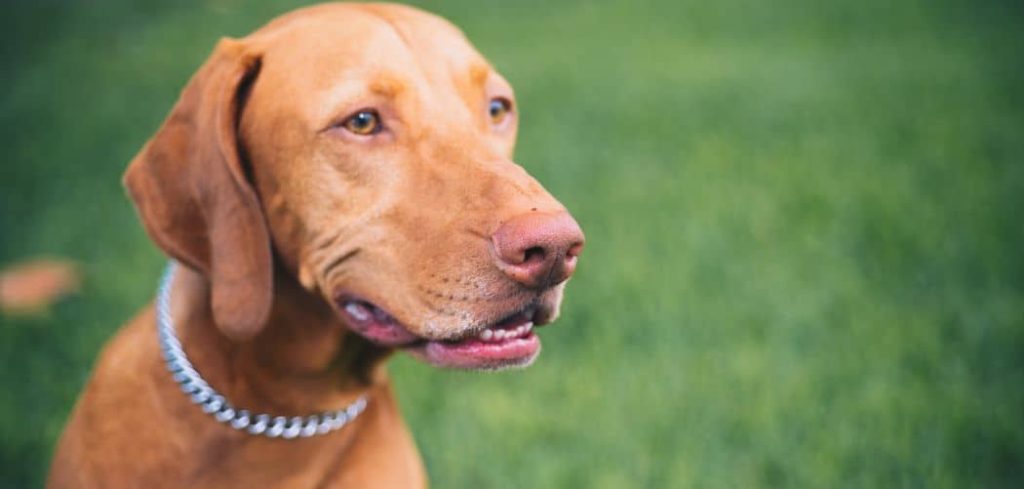Loose stool in dogs can be worrying, especially when it appears suddenly without any other symptoms. Even if a dog seems otherwise healthy, changes in bowel movements can signal an underlying issue that needs attention.
We outline the possible causes of loose stool in dogs with no other symptoms, what you can do at home, and when to seek veterinary help.
Dog Loose Stool No Other Symptoms — Why It Happens
Loose stool in dogs without additional signs is often linked to mild digestive upset, dietary changes, stress, or food intolerances. Sometimes, parasites or bacterial imbalances in the gut can cause soft stools even when a dog appears fine otherwise.
Other times, overfeeding, treats, or sudden changes in diet may trigger it. While it may resolve quickly, consistent loose stool should not be ignored, as it may reveal early stages of a health condition.

Dog Loose Stool No Other Symptoms: Possible Causes
Dietary Indiscretion
Dogs often eat things they shouldn’t — such as scraps, garbage, or spoiled food. When this happens, the digestive tract may respond with loose stool.
In many cases, there are no other symptoms, but repeated dietary indiscretion can cause more serious issues like vomiting or infection.
Owners may notice soft or watery stools after their dog raids the trash or sneaks table food.
Related: Dog Loose Stool With Mucus (Why it happens)
Sudden Diet Change
A rapid switch in dog food can upset the gut microbiome and lead to temporary diarrhea or loose stool.
Even if a dog is otherwise energetic and normal, the stomach and intestines need time to adjust to new proteins, grains, or fiber. Loose stools from diet changes usually appear within a day or two of starting a new food.
Stress or Anxiety
Dogs are sensitive to stress, and changes in environment, routine, or household dynamics can impact digestion. Stress-induced colitis may cause loose stool but no other obvious symptoms.
Dogs boarding, traveling, or adjusting to a new home may develop softer stools that resolve once they feel secure again.
Food Intolerances or Sensitivities
Some dogs have sensitivities to certain proteins, dairy, grains, or additives. These intolerances may not cause dramatic illness but can result in ongoing loose stool with no other symptoms.
Identifying the trigger usually requires diet trials and elimination feeding guided by a veterinarian.
Read more: Dog Diarrhea No Other Symptoms (When to worry and what to do)
Parasites
Intestinal parasites such as giardia, whipworms, or roundworms can sometimes cause mild loose stool without additional signs, particularly in healthy adult dogs.
Puppies or senior dogs may show more severe illness, but in otherwise strong dogs, parasites may simply cause softer-than-normal stools that persist.
Bacterial Imbalance
The gut is full of healthy bacteria that support digestion. When this balance is disrupted — by antibiotics, poor diet, or unknown factors — stool consistency may change.
Loose stool from bacterial imbalance may occur without loss of appetite, vomiting, or lethargy, making it easy to overlook.
Related: Old Dog Loose Stool With No Other Symptoms (Here’s Why)
Puppy loose stool no other symptoms
A puppy having loose stool but no other symptoms is often caused by mild digestive upset. This can happen when they eat something new, switch to a different food too quickly, or consume something they shouldn’t, like grass or a small object.
Puppies also have developing digestive systems, making them more sensitive to diet changes. As long as your puppy is playful, eating, and drinking normally, it’s usually not a cause for alarm.
However, if the loose stool lasts more than a couple of days, contains blood, or your puppy becomes lethargic or loses appetite, consult a vet — persistent diarrhea can quickly lead to dehydration in young dogs.
Read more: Puppy loose stool no other symptoms (Causes Explained)
What to Do If Your Dog Is Experiencing Loose Stool With No Other Symptoms
If your dog’s stool is loose but they are otherwise acting normal, you can often manage it at home initially. Withhold food for 12 hours to give the gut a rest, while ensuring your dog has constant access to fresh water to prevent dehydration. Then, introduce a bland diet such as boiled chicken and rice for 1–3 days, gradually reintroducing their normal food once stools improve.
Make sure your dog is not eating anything inappropriate from the yard, trash, or table scraps. If the issue may be linked to a new diet, consider transitioning more slowly over 7–10 days by mixing old and new food gradually.
A probiotic supplement may help restore healthy gut balance and firm up stools. Keep a close eye on your dog’s behavior and energy levels. If they remain bright and playful, the issue may resolve on its own with supportive care.
When to Call or Visit Your Vet
Even if there are no other symptoms, persistent loose stool should not be ignored. If diarrhea lasts longer than 2–3 days, consult your veterinarian for stool testing to rule out parasites, infection, or food sensitivities.
Call your vet immediately if loose stool is accompanied by vomiting, lethargy, blood in the stool, refusal to eat, or signs of dehydration such as sunken eyes or sticky gums.
Puppies, senior dogs, and small breeds are especially vulnerable to dehydration and complications from diarrhea.
If your dog has a history of chronic digestive issues, food sensitivities, or recent medication use, it’s important to mention this to your veterinarian, as it may provide clues about the underlying cause.
Read more: Dog Vomiting No Other Symptoms (Here’s what it means)
Key Takeaway
Loose stool in dogs with no other symptoms is often linked to diet, stress, or mild digestive upset.
While it may not always signal something serious, monitoring your dog closely is important to ensure it doesn’t develop into a bigger issue.
Short-term at-home care can help, but persistent or worsening loose stool should be evaluated by a veterinarian.
By staying alert and proactive, you can protect your dog’s health and ensure they remain happy and comfortable.
